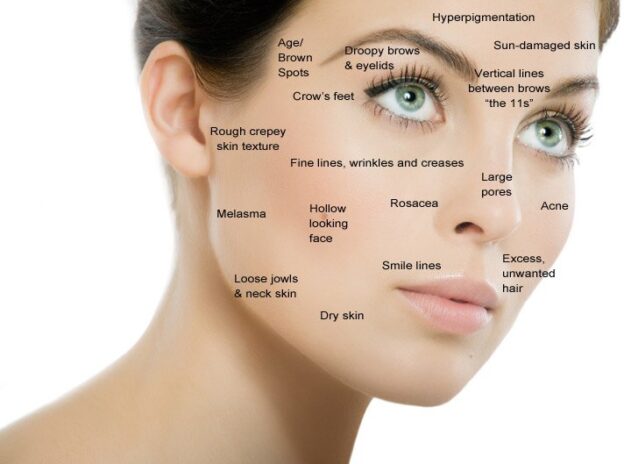A Cyborg Manifesto was first published in 1985. While plastic/cosmetic surgery (herein referred to as cosmetic physical intervention) was an option to consumers in the 80s (liposuction was developed in that era, in fact), it was not as widespread and technologically advanced of a practice as it is today. Currently a multi-billion-dollar industry, various manners of cosmetic physical intervention is now commonplace in certain social/cultural spheres. The marketing target for this industry has gotten lower and lower over the years; I am currently in my 20s, and I am aware of peers my age (and younger) that have integrated all manners of cosmetic technology into their lives (preventative Botox comes to mind).
I selected a video as my piece of media, one that was shown to me as a recommended video when I was on YouTube. The video discusses the cosmetic physical intervention industry in South Korea, showcasing some of the technologies available and outlining why the country is an international destination for cosmetic work (for a taste of cosmetic surgery in South Korea see : https://gawker.com/plastic-surgery-blamed-for-making-all-miss-korea-contes-480907455 ). There is a ton of machinery in this video, all used on bodies. Does plastic surgery contribute to someone being a cyborg?





Thanks for sharing this and posing such an interesting question. I was fascinated with the Jillian Weise piece we read this week, and the suggestion that Haraway’s manifesto trivialized the idea of being a cyborg by implying that it is some sort of universal experience. “By the late twentieth century, our time, a mythic time, we are all chimeras, theorized and fabricated hybrids of machine and organism; in short, we are cyborgs,” Haraway wrote. I just finished watching a video (on her website, if anyone is interested: http://jillianweise.com/) in which Weise expands on this idea. Weise, who identifies as a cyborg and uses the pronouns “cy,” says the following: “In Harraway’s metaphorical sense, everyone is a cyborg. It has led to three decades of erasure of disabled cyborgs.” So after watching this and listening to what she has to say, I would say that if the plastic surgery is for cosmetic purposes only, no, it would not contribute to someone being a cyborg.
Oh this is such a great question and I’ve been changing my opinion back and forth so many times. I think I would say that yes, plastic surgery would contribute to someone being a cyborg. It’s a form of medical technology that’s been enhanced over the years for both cosmetic and functional bodily enhancements. Consider artificial organs or implants like pacemakers that regularly go into bodies today. While I think I agree that today we’re all cyborgs in one way or another, these medical examples just push the envelope. They further pull us away from that “natural” state and blend the boundaries. I’m curious about how gender reassignment surgery would fit into this narrative as well. This is a literal example of blending those natural gender boundaries. Is it not also considered a form of plastic surgery? Genuine question, I’m curious. Your reference to South Korea being a leader in skin care trends is spot on. The vast majority of cutting edge skin cosmetic procedures begin over there.
Such a compelling question! I’m eager to read others’ thoughts.
Thanks to Stephanie and Amanda’s responses, I think there’s an argument to be made about prepositions. Tess, you note that this video shows a ton of technology being used ON bodies. And to me, the nature of Weise’s conception of the cyborg is that technology is used IN bodies. In plastic surgery, at least the kind that the narrator of the video you posted is discussing, the tech changes the look and shape of the physical body. But Weise was discussing incorporation (in its most etymologically literal sense) of technology into the body to restore functionality and, by doing so, to ensure survival.
(On a side note, the Butler piece came to me when I was reading Amanda’s reply. I think I used to think of a “natural” state of gender as binary and fixed. But I’m starting to realize that I was taught to see the world that way. As a huge fan of nature shows, especially the BBC ones narrated by Attenborough, I’ve learned that nature offers an array gender experiences. In one species of fish, females with particularly large bodies sometimes transform to become male.)
Hi Tess, this is a great question. I would have to agree with Stephanie that this is not an example of a cyborg because there is not a robotic piece being inserted in or on you. In addition, this surgery is much more optional than someone who needs a robot to live properly. It does seem though to contribute to the ongoing conversation of transhumanism. It makes me wonder if in the future it would be so normal to have plastic surgery that those who do not are considered ugly. It surprised me the number of people who have these surgeries, and more than once. If only the middle class and upper class can afford it, will the lower class be considered a less beautiful group of people?
Very interesting! Although the South Koreans are transforming their looks, and certainly a lot of medical equipment is being used, I do think that cyborg involves an incorporation of technology within the body, or at least as an extension of the body, not machines that work upon the body and then are separate. If we use that as a definite of cyborg, then anyone who’s had surgery would be a cyborg–it’s a little too broad.
Hi Tess, thank you for such an interesting blog! I am also surprised by the number of people my age (24) who have plastic surgery! And I remember the first time one of my peers got plastic surgery was when we were about 13-14. She goes rhinoplasty.
But regarding your question, I agree with what a few of my classmates said here: to be a cyborg. You would need some piece of technology incorporated into your body. However, remaining loyal to the paper I have to lead today, Weise claims that people who do not need this technology incorporated into their bodies are tryborgs. Their struggles and worries are different from cyborgs. Cyborgs are people who need technology to survive, this would include prosthetic legs, pacemakers, etc.
I have enjoyed reading everyone’s interesting responses thus far! A few thoughts-
Amanda- you raise an interesting point about gender reassignment surgery that makes me consider the multitude of technologies used to address matters of “gender”. It seems like a technology that contributes to gender presentation/embodiment would technically qualify as material that contributes to someone’s “cyborg-ness”
Kelly- I agree about the on/in preposition distinction. However, there are many cosmetic technologies that also do impart something INTO the body, like injectables that impart chemical compounds between the layers of muscle and skin. Where does that type of cosmetic technology fall in relation to cyborg-ness?
Carolle- your comment on accessibility to plastic surgery as an economic indicator, thus making “beauty” a classed issue, is an interesting thing to think about!
To take the contrary view point from most of the other responses, I think plastic surgery has the potential of contributing to a person being a cyborg (or a tryborg). I think this also stems from the question of what is technology. For Botex, machinery isn’t being inserted into you, but a chemical is, and that chemical is creating a change in how the body (the face, the skin) acts. Can those chemicals be considered technology? What about breast implants? And then to take a very science fiction approach, are we eventually heading to a place where once something is implanted, we can then (using technology in the machinery sense) change our appearance on a daily basis. I am envisioning remote controlled implants. Society is doomed, haha.
It is a very interesting question, Cali Colombia, the city where I grew up, is also one of the most visited places in the world to do plastic surgeries. Most of these are body surgeries, to enlarge the breasts or buttocks. In Cali, this “new fashion” appeared with the rise of drug trafficking, it is a very violent aesthetic on the body of women and that has become “a new normal”, often 15-year-old adolescents want to enlarge your breasts size 32 to 38 or more. I don’t really know if they are cyborgs, but I genuinely believe that it is a very violent process that objectifies the woman’s body.
From the author Meredith Jones of the “Expressive Surfaces: The Case of the Designer Vagina,” plastic surgery often makes a 3-D person into a 2-D picture. If this occurring, then I feel very much it is turning a person into a Cyborg. The person is no longer their 3-D self with a full movement but a 2-D picture with a lack of movement. This forming them to be more of an image to look at.
If we take an expansive view of being a cyborg, in the sense of using technology to move toward a “monstrous,” or non-traditional body, then I would say yes. While most plastic surgery is done to satisfy conventional expectations (as in Yohanna’s example above), I see no reason why more eccentric, unique, artistic surgeries might not one day become as routine as tattoos and piercings.